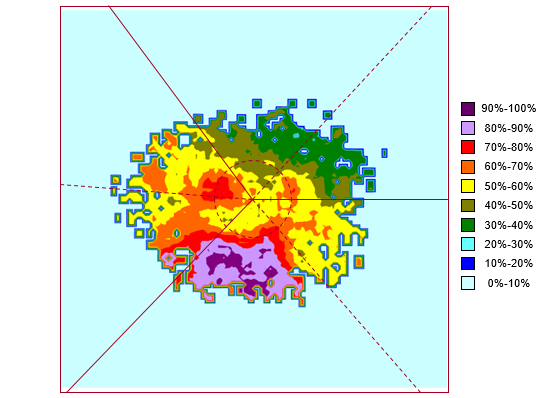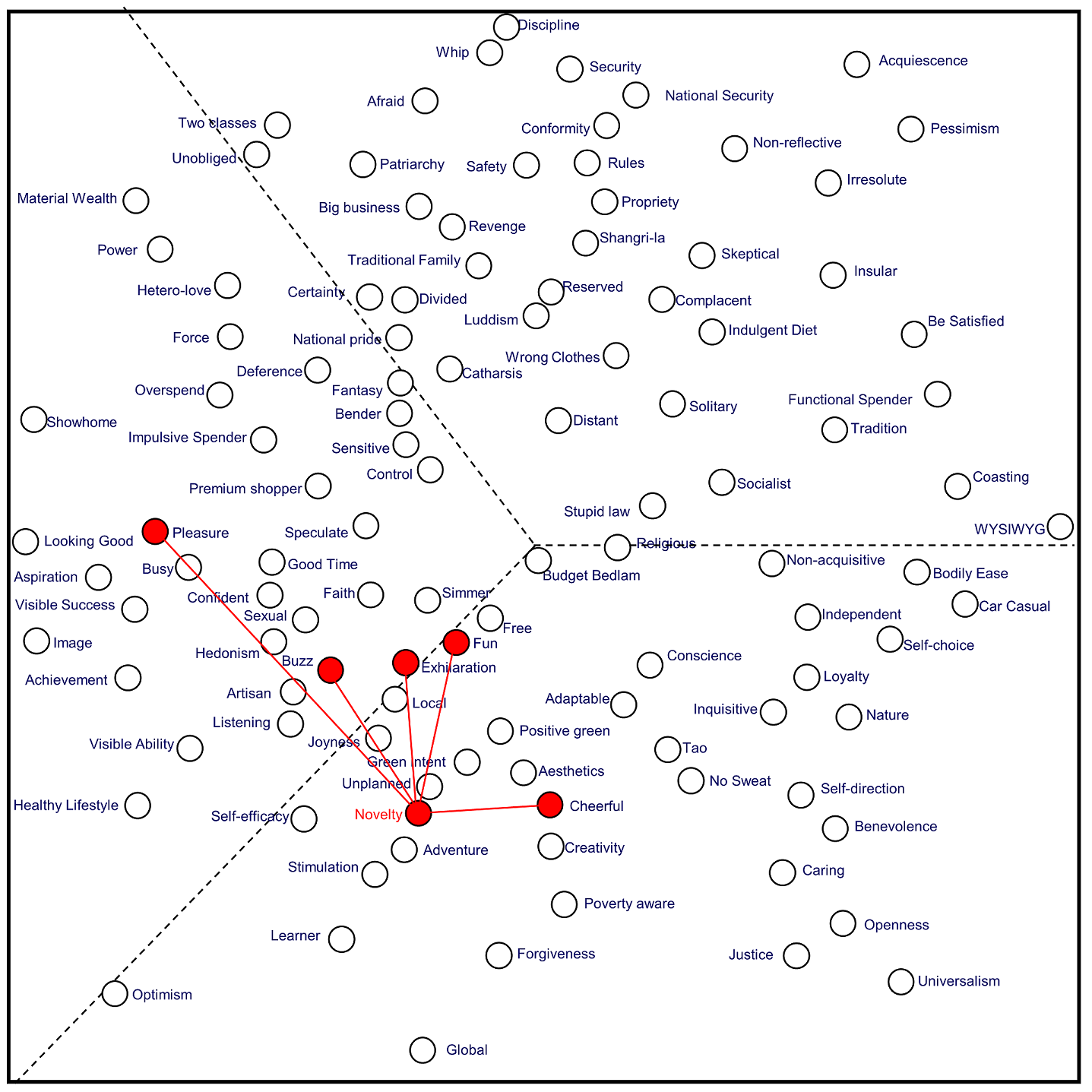

NOVELTY
 |
I like surprises and am always looking for new things to do.
I think it is important to do lots of different things in life.
“The only constant is change.”
Novelty espousers love to have fun and their main sources of fun are new ideas, new products and new experiences. Reserving the weekend for such fun is not enough. They try to have fun all the time. They get bored easily, so love surprises. If there is too much repetition and more of the same, they will seek to spice things up by trying something new.
Pleasure is not just a passing fancy. Novelty espousers see it as core to the purpose of life. If they are not having fun, then they feel that they have strayed from their life’s path and lost sight of their goals. That said, these people are not just about party time, they like challenges and recognise that this may mean going through periods of adversity to get to the top of the mountain. However, they will not sacrifice too much for too long, because there is a need to have fun. And difficult times are another opportunity to experiment with new and better ways.
They like to live life on the edge, whether it be dangerous activities or by taking risks. Sometimes, such experiences may be against the rules, but they will cross the line if it makes them feel energised and alive. Adrenaline junkies, they are constantly searching for stimulation and excitement.
The individuals that are most likely to espouse the Novelty attribute are those aged between 22 and 24 years of age, where there is a tendency to have fewer restrictions — not held back by their parental family and not held back by the new responsibilities of their own family, or the responsibilities associated with senior working positions. As long as they are trying something new and enjoyable, they can feel at home almost anywhere. The yearning for something new trumps any urge for stability, certainty and assurances. And this is the case for both men and women, where there are no significant differences for this attribute.
In a different context, novelty seeking can be associated with disorders like alcoholism, compulsive gambling and attention deficit disorder; however, our questions have helped to identify novelty seeking as a crucial predictor of well-being and contentment. It can lead to anti-social behaviour but if you combine this adventurousness and curiosity with persistence and a sense that it’s not all about you, then you get the kind of creativity that benefits society as a whole.
Ultimately, Novelty espousers are searching for more meaning in their life and work. They are not necessarily seeking novelty for novelty’s sake. It is about enriching, refining and enhancing their experience and knowledge. Even the search for something new can become frustrating and predictable. Those who can hold onto the essence of this attribute as they get older realise that doing something new is not enough, it is also about doing something differently. This shift in emphasis is the moment when these people become the true drivers of social change and innovation.
Using NoveltyDemographic Skews: 1) Over indexed: 22-24, up market. 2) Under indexed: 65+. Novelty espousers also espouse other attributes. The top five most highly correlated attributes of Novelty espousers are, in order of the strength of relationship: 1) Fun In total those who espouse Novelty also over index significantly on 29 other Attributes. |
|
If "Novelty" (or the associated attributes) are important to you and you would like to delve more deeply, contact us at mail@cultdyn.co.uk
